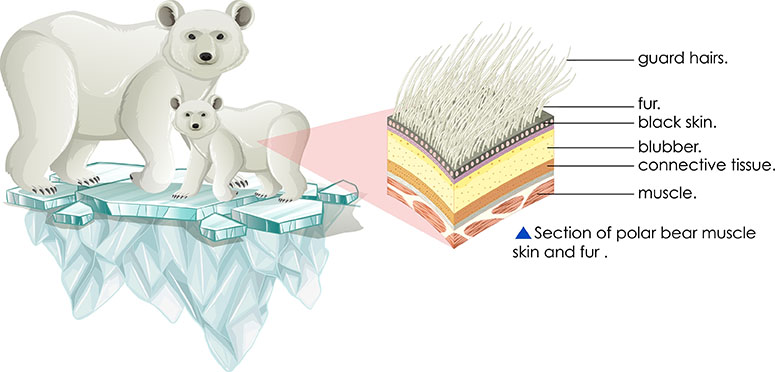

Blubber is a thick layer of fatty tissue that insulates marine mammals from the cold water. It is found in whales, seals, and sea lions.
Blubber is made up of a type of fat called adipose tissue. Adipose tissue is a type of tissue that stores energy in the form of fat. Blubber is a very good insulator because it has a lot of air pockets in it. The air pockets trap heat, which helps to keep the marine mammal warm.
Blubber also helps to keep marine mammals afloat. The fat in blubber is less dense than water, so it helps to keep the mammal's body from sinking.
Blubber is an important adaptation for marine mammals. It helps them to survive in the cold water and to stay afloat.
The whale’s blubber helped to keep it warm in the cold water.

Noun:
blubber (a thick layer of fat found under the skin of whales, seals, and other marine mammals).
Adjective:
blubbery (resembling or consisting of blubber).
Verb:
to blubber (to cry or sob loudly).
The word “blubber” comes from the Middle English word “blobber”, which means “to swell or bulge”. It first appeared in English in the 15th century, and it was originally used to refer to any fatty or spongy substance.
How does blubber help an animal?